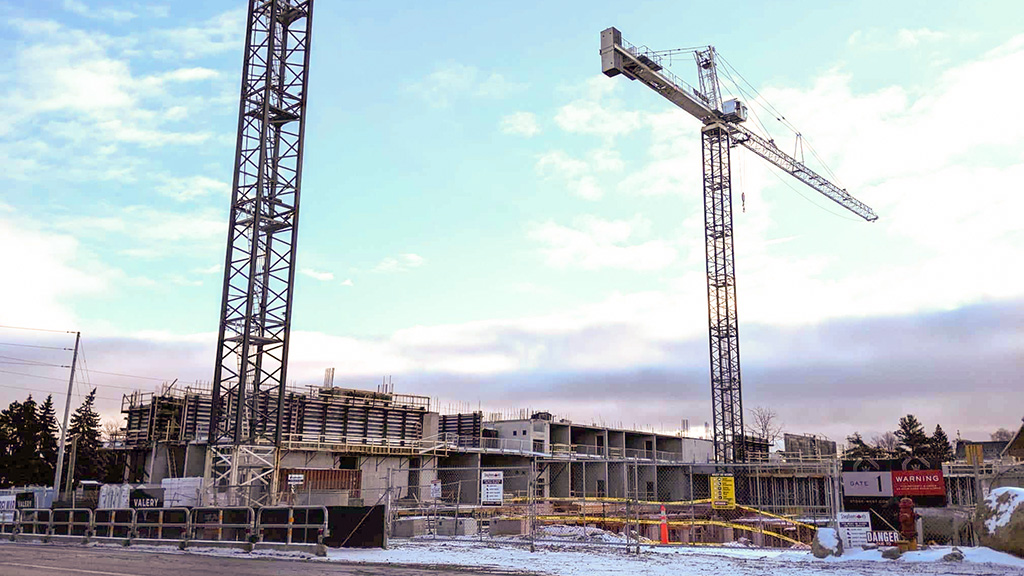Key stakeholders are aligned in calling on the Justin Trudeau government to commit to a robust pipeline of infrastructure projects through funding and regulatory support as federal budget day looms less than a month away.
Association of Consulting Engineering Companies – Canada president and CEO John Gamble is calling for renewal of the government’s Investing in Canada Infrastructure Program (ICIP) or the launch of a successor program.
Gamble also said the ACEC wants a commitment to “new money to support the housing initiative, and not just simply money retasked from other programs.”
Additionally, Gamble said he is heartened by the recent revelation that Infrastructure Canada is preparing to formally launch its long-delayed National Infrastructure Assessment (NIA) program and suggested it would serve as an important new resource for infrastructure planners and developers.
The Federation of Canadian Municipalities (FCM) has launched a campaign calling on the federal government to support its commitment to new housing by investing in the infrastructure required to develop complete communities for municipalities, including a boost in the Canada Community Building Fund (CCBF).
On March 14 Ontario Premier Doug Ford sent a six-page letter to Trudeau asking the federal government to ensure upcoming reforms to the Impact Assessment Act do not impair the funding partners’ ability to help build “new roads, highways and public transit projects faster.”
He also pressed the prime minister to commit to funding 40 per cent of costs of four Toronto subway projects and to match the province’s commitment of $1 billion to build roads to the Ring of Fire and streamline environment assessments for the project.
Tools to support growth
“It is high time to empower municipalities with the tools they need to support growth,” said Mayor of Halifax Mike Savage, chair of the FCM’s Big City Mayors’ Caucus. The FCM is advocating for all orders of government to come together to develop a Municipal Growth Framework.
The federal budget will be delivered by Finance Minister Chrystia Freeland April 16.
“This is going to be a statement budget of sorts,” said Gamble.
Referring to the NIA, he added, “This is a good opportunity for this government to really follow through on a meaningful and substantive policy commitment, something that is actually going to pay dividends for decades.”
The ACEC focused on the NIA and renewal or replacement of the ICIP on its Hill Day last fall when its members met with Members of Parliament. There is urgency with the ICIP given that the intake has expired.
The NIA was announced by the government in Budget 2021 followed by consultation with stakeholders, with seven recommendations drawn up.
Gamble said he spoke with NIA secretariat director general Saba Khwaja last week and was reassured progress has been made with a public launch in sight.
“There’s staff and a team that’s dedicated to fleshing out the National Infrastructure Assessment and getting it launched,” he said.
“The National Infrastructure Assessment can help us have that line of sight on the investments we need to not only support communities, but to support our trade…and also the other piece in all this is supporting First Nations.”
Gamble said he believes the principles developed out of the first round of consultations are still in play. They included creating an independent advisory body; ensuring fact-based advice on Canada’s infrastructure needs; and establishing consistent, long-term funding guidelines to support sustainable investment.
‘Launched in the coming weeks’
An Infrastructure Canada spokesperson confirmed an advisory body with the responsibility to develop the NIA would be “launched in the coming weeks.”
“The NIA, once in place, will help improve Canada’s long-term infrastructure planning and decision-making by compiling new data sets and evidence and by conducting research and analysis to help identify Canada’s future infrastructure needs and priorities,” a statement said, adding the agency would support both the public and private sector.
The NIA could become similar to Statistics Canada, Gamble said, undertaking extensive research on infrastructure and offering a lens through which all infrastructure decisions are made.
Ideally, he said, the NIA would have been in place as the replacement program for the ICIP was being developed but Gamble said it is important to advance NIA with sure footing.
“Even if they have to limit the scope to launch it sooner, I’m OK with that,” he said. “I would rather quality over quantity, because I think this has such upside. Getting it right is going to ultimately pay dividends right across the spectrum of infrastructure investments. Let’s get it out the door, get it right.”
Follow the author on X/Twitter @DonWall_DCN.











Recent Comments
comments for this post are closed